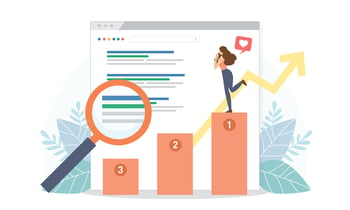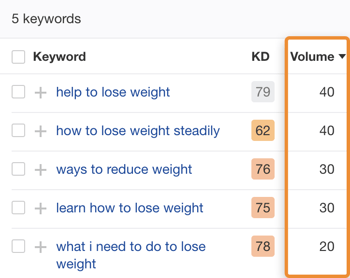
Cutting-Edge Marketing to Grow Your Business.

As inbound marketing becomes an increasingly important strategy for businesses, SEO has become a crucial component of this approach. By optimizing your website content and using the right keywords, you can raise your ranking on search engines and attract more potential customers. However, SEO is not a one-time task; it requires ongoing effort to maintain your ranking. In order to get the most out of SEO, business owners need to be aware of the latest trends and changes in search engine algorithms. This article provides an overview of SEO and offers tips for improving your ranking.
 SEO is a critical component in inbound marketing, as it helps businesses attract more links and drive higher engagement metrics. According to Impactplus.com, 70% of marketers see SEO as more effective than PPC. SEO can help businesses reach their goals by increasing website visibility and driving traffic to their site. In addition, quality content provides value to readers which will keep them engaged and coming back for more—this demonstrates to search engine indexers that users are finding value in a website’s content which will boost SEO rankings further. As a result, businesses can see an increase in online visibility which leads to more sales opportunities through increased traffic and higher conversion rates.
SEO is a critical component in inbound marketing, as it helps businesses attract more links and drive higher engagement metrics. According to Impactplus.com, 70% of marketers see SEO as more effective than PPC. SEO can help businesses reach their goals by increasing website visibility and driving traffic to their site. In addition, quality content provides value to readers which will keep them engaged and coming back for more—this demonstrates to search engine indexers that users are finding value in a website’s content which will boost SEO rankings further. As a result, businesses can see an increase in online visibility which leads to more sales opportunities through increased traffic and higher conversion rates.
Inbound marketing’s foundation is built on the principles of SEO, which makes the application of such tactic inevitable. This is because SEO provides quality content to readers in a non-robotic approach, which will keep them engaged and coming back for more—this demonstrates to search engine indexers that users are finding value in your website’s content which will boost SEO rankings further. As a result, your business can see an increase in online visibility which leads to more sales opportunities through increased traffic and higher conversion rates.
Keep reading, and let’s break it down a little more.
 The SEO process helps businesses rank higher on search engines, allowing them to connect with more potential customers. SEO involves creating content that is keyword-rich, relevant, and of high quality in order to improve visibility on the web. SEO also requires optimizing your website by strategically placing keywords throughout the page titles, headlines, URL structures, and meta descriptions. SEO also uses links to boost SEO ranking as external sources can empower SEO performance. Furthermore, SEO encourages businesses to create authentic content that people want to read in order to attract more inbound links. This can be done by producing blog posts, ebooks, and other forms of resources that are optimized for keywords related to the business's services or products.
The SEO process helps businesses rank higher on search engines, allowing them to connect with more potential customers. SEO involves creating content that is keyword-rich, relevant, and of high quality in order to improve visibility on the web. SEO also requires optimizing your website by strategically placing keywords throughout the page titles, headlines, URL structures, and meta descriptions. SEO also uses links to boost SEO ranking as external sources can empower SEO performance. Furthermore, SEO encourages businesses to create authentic content that people want to read in order to attract more inbound links. This can be done by producing blog posts, ebooks, and other forms of resources that are optimized for keywords related to the business's services or products.
By employing SEO tactics such as keyword optimization and link building, businesses can increase their chances of appearing higher on Google search results pages. This will help them reach larger audiences and receive more visits from potential customers who are looking for a solution related to their needs. Additionally, SEO allows businesses to establish trust with potential customers as having great organic visibility indicates credibility and a commitment to providing value through quality content. Businesses who optimize their websites using SEO will benefit from improved user experience which leads users down a sales funnel towards conversion—potential customers become paying customers who are loyal and provide long-term value for your business. Ultimately, SEO is an essential part of inbound marketing which helps businesses boost their organic reach leading to increased visits from potential customers who have a desire for their solutions or services.
 Authentic content, keywords, and on-page SEO are some of the most important aspects of SEO for businesses looking to increase their visibility online. Authentic content helps build trust with potential customers, as search engine algorithms prioritize quality content that is relevant to what people are searching for. Quality inbound links from external sources also help SEO rankings, as they demonstrate credibility and provide a boost in SEO performance. Keywords play an essential role in SEO performance. By optimizing website content and using the right keywords, businesses can increase their rankings on search engine result pages, thus increasing their chances of being found by potential customers. Additionally, strategic keyword placement within page titles, headlines, URL structures, and meta descriptions can also help increase organic search engine visibility.
Authentic content, keywords, and on-page SEO are some of the most important aspects of SEO for businesses looking to increase their visibility online. Authentic content helps build trust with potential customers, as search engine algorithms prioritize quality content that is relevant to what people are searching for. Quality inbound links from external sources also help SEO rankings, as they demonstrate credibility and provide a boost in SEO performance. Keywords play an essential role in SEO performance. By optimizing website content and using the right keywords, businesses can increase their rankings on search engine result pages, thus increasing their chances of being found by potential customers. Additionally, strategic keyword placement within page titles, headlines, URL structures, and meta descriptions can also help increase organic search engine visibility.
On-page SEO is yet another essential aspect of SEO. It involves optimizing a website for better user experience in order to make it easier for search engines to index it. This includes making sure that websites are well organized and easy to navigate so they will be quickly indexed by search engines. Furthermore, creating great user experiences encourages users to stay on your website longer which will boost SEO ranking through increased engagement metrics such as time spent or pages viewed. SEO is an ongoing process that requires careful consideration—from regularly creating quality content that offers value to users and strategically placing keywords throughout the page titles, headlines, URL structures and meta descriptions – these are all key components of SEO success that businesses should prioritize when launching their inbound marketing campaigns.
 Links from external sources are an essential factor in SEO performance. External links, or backlinks, are like votes of confidence from other websites and search engines take notice of them when calculating SEO ranking. Quality links from authoritative sites show that your content is trustworthy and can be used as a reference by others. This, in turn, helps boost SEO performance and increase domain authority.
Links from external sources are an essential factor in SEO performance. External links, or backlinks, are like votes of confidence from other websites and search engines take notice of them when calculating SEO ranking. Quality links from authoritative sites show that your content is trustworthy and can be used as a reference by others. This, in turn, helps boost SEO performance and increase domain authority.
Having good quality, external backlinks also indicates to search engines that your website has credible content that can be trusted. Every link pointing to your website shows that someone else thought reputable enough to include it as a reference—this strengthens SEO rankings the more quality links you have pointing to your website. Additionally, external links help search engine indexers easily identify and assess webpages quickly and accurately—the better they understand your webpage’s content the higher it will rank in SEO results pages.
In addition to SEO benefits of links from external sources, these backlinks can also drive more traffic to your website as readers may click on them if they find them useful or relevant. This increases engagement metrics such as time spent on page or pages viewed—higher engagement metrics demonstrate to search engine indexers that readers are finding value in your webpages which will ultimately result in higher SEO rankings for those pages.
Overall, Links from external sources are an important ranking factor for SEO success because they bolster the trustworthiness of webpages which leads to improved SEO performance for businesses wanting increased online visibility. Quality backlinks add value and credibility through offering another perspective on a topic and can potentially open up new opportunities for businesses looking to make their mark in the digital world.
When businesses create high-quality content that is genuinely helpful for their customers, they are naturally rewarded with more inbound links. Quality content helps build trust with customers and increases the likelihood that other companies or individuals will link to it. For example, if a blog post offers valuable insights into an industry topic, readers may be more likely to share it with their networks and link to it in their own resources. In turn, this increases SEO rankings as search engine indexers take note of these external links and consider them when determining website visibility.
Organically creating high-quality content can also save businesses time and money that would otherwise be spent on SEO efforts such as link building or pay-per-click campaigns. By creating content that naturally attracts more inbound links, businesses can increase the scope of their SEO reach without needing to invest in additional SEO tactics. Furthermore, high-quality content provides value to readers which will keep them engaged and coming back for more—this demonstrates to search engine indexers that users are finding value in a website’s content which will boost SEO rankings further.
In addition to SEO benefits of quality content creation, businesses may find themselves reaching a wider audience organically through third-party websites linking back to them. This could lead to new business opportunities or partnerships as well as introduce new products or services into the market—allowing businesses to gain a competitive edge over their competitors while increasing SEO performance at the same time. The bottom line is that by creating high-quality content that is genuinely helpful for your customers, you will naturally attract more inbound links and benefit from improved SEO performance which leads to increased online visibility and potentially greater success overall.
SEO is a critical component of inbound marketing, as it helps businesses attract more links and drive higher engagement metrics. By creating high-quality content that is genuinely helpful to your customers, you can increase your SEO performance and take full advantage of the many benefits of inbound marketing. Whether you are looking to drive more traffic or open up new business opportunities, SEO can help you reach your goals and grow your business on the web.



Lorem Ipsum is a simple dummy text used as a dummy text contents. Lorem ipsum will be replaced. Lorem Ipsum is a simple dummy text used as a dummy text contents. Lorem ipsum will be replaced.Lorem Ipsum is a simple dummy text used as a dummy text contents. Lorem ipsum will be replaced.




